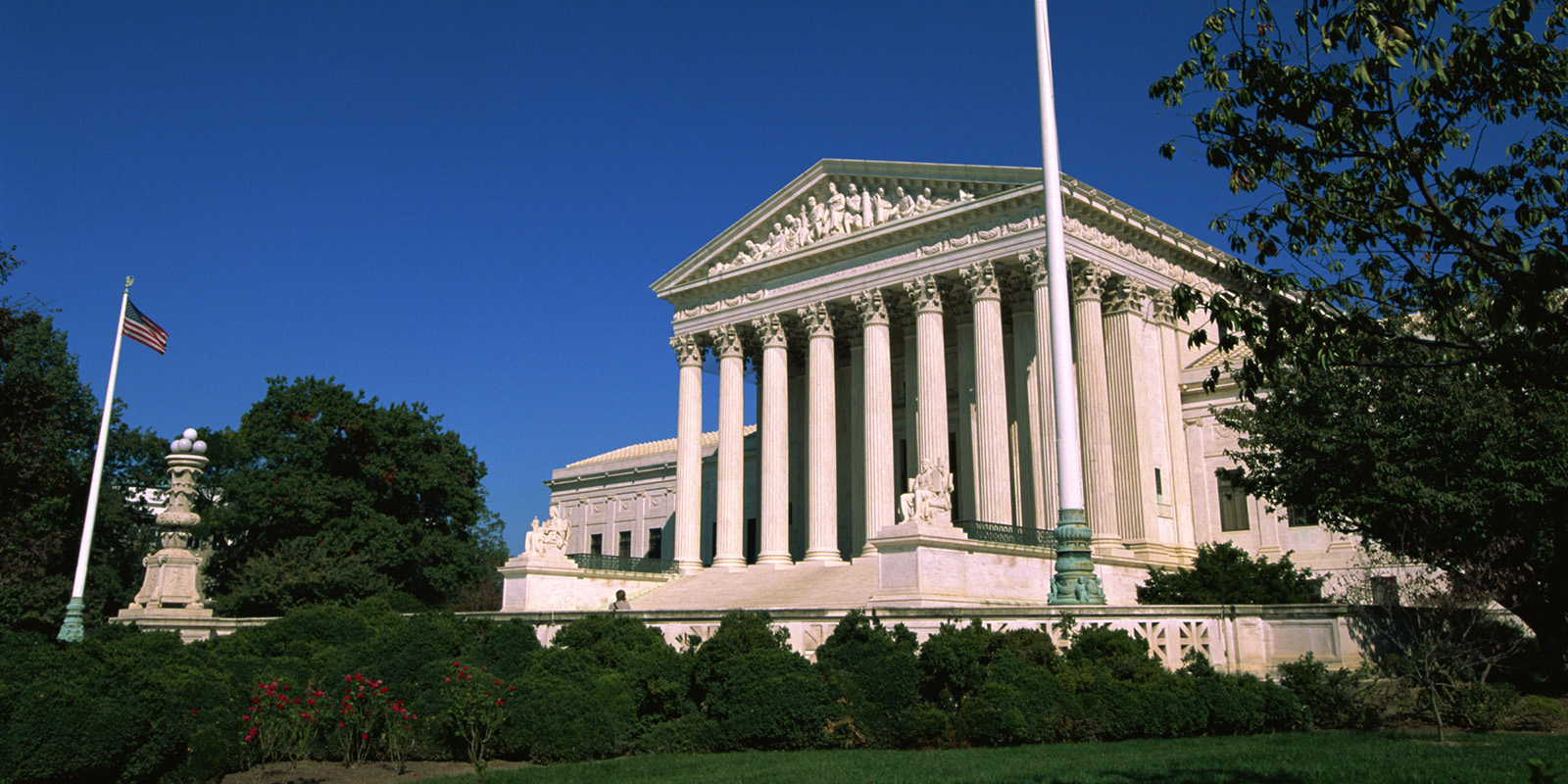
U.S. Supreme Court to Resolve Service of Process by Mail Under the Hague Convention
Recently, the United States Supreme Court granted certiorari in a Texas state court case and will decide whether the Hague Convention allows for service by mail on defendants residing in foreign countries. Water Splash, Inc. v. Menon, 2016 WL 4523079 (Dec. 2, 2016). The Texas appellate court decided that Texas follows the so-called "minority view" and the Hague Convention does not permit service by mail. While the Texas Supreme Court declined to hear the case, the U.S. Supreme Court is now poised to resolve a longstanding circuit split over this issue.
The Circuit Split
Contrary to the Texas appellate court's decision in Water Splash, the "majority view" holds that the Hague Convention allows service of process by mail, as long as the state of destination does not object. Courts following this view include the Second, Fourth, Seventh, and Ninth Circuits.[1] The Fifth Circuit, Eighth Circuit. and district courts in the Third and Eleventh Circuits, however, reject the "majority view" and hold that service must be effectuated by the specific methods authorized by the terms of the Hague Convention.[2] As noted by Water Splash, Inc. in its Petition for Writ of Certiorari, this issue is frequently addressed by federal and state courts—more than 120 times by its count of recent cases. The U.S. Supreme Court is now set to clear up this circuit split through its review of the Water Splash case.
Case Background and Trial Court Ruling
Water Splash, Inc. filed suit against Tara Menon, a former regional sales director at Water Splash, claiming that, at some point while she was still an employee with Water Splash, she also began working for a competitor, South Pool. Water Splash claimed that South Pool used Water Splash's designs to submit a bid to the City of Galveston for the construction of splash pads at two parks.
To effectuate service on Menon, Water Splash filed a motion for service of process pursuant to Texas Rule of Civil Procedure 108a, which governs service of process in foreign countries and provides for various methods of service. One of those methods is substituted service under Rule 106(b), which states, in part, that a court may authorize service in "any other manner that the affidavit or other evidence before the court shows will be reasonably effective to give the defendant notice of the suit." Tex. R. Civ. P. 106(b). Water Splash's motion requested that the trial court order service on Menon in Quebec, Canada, by "first class mail, certified mail, and Federal Express to Menon's address" and "by email to each of Menon's known email addresses." Menon v. Water Splash, Inc., 472 S.W.3d 28, 30 (Tex. App.—Houston [14th Dist.] 2015, pet. denied). The trial court granted Water Splash's motion.
After Menon did not file an answer or appear in the suit, Water Splash moved for default judgment. Water Splash's motion asserted that service had been diligently sought and accomplished by sending a letter to Menon's Quebec address by certified mail, return receipt requested, and first class mail. Water Splash also alleged that Menon's emails proved she knew about the suit. The trial court entered the default judgment against Menon for actual and exemplary damages and attorneys' fees.
Menon eventually filed a motion for new trial and argued that the default judgment should be set aside because service did not comply with Article 10(a) of the Hague Service Convention. In response, Water Splash argued that Rule 108a was an acceptable form of alternative service. The trial court denied Menon's motion for new trial, and Menon appealed.
Texas Court of Appeals Decision
The question on appeal was whether, in light of the specific language used by the drafters, service of process by mail is permitted under Article 10(a) of the Hague Service Convention. The Texas Court of Appeals began its analysis with the well-settled proposition that the Hague Convention preempts any inconsistent methods of service prescribed by Texas law in all cases where the Convention applies. The Hague Convention applies in all civil and commercial matters where "there is occasion to transmit a judicial or extrajudicial document for service abroad." Convention on the Service Abroad of Judicial and Extrajudicial Documents in Civil or Commercial Matters, Nov. 15, 1965, art. 1. The Convention, therefore, applied to Water Splash's attempt to serve Menon.
Articles 2 through 7 of the Convention require signatory nations to establish a "Central Authority" to act as an agent to handle requests for service, service of documents, and proof of service. Id. at arts. 2-7. Article 10 of the Convention, however, lists certain actions that the "Convention shall not interfere with," including section (a): "the freedom to send judicial documents, by postal channels, directly to persons abroad." Id. at art. 10.
Water Splash argued that Article 10(a), therefore, permits service of process by mail and noted that this conclusion is the "majority view" followed by the Second, Fourth, Seventh, and Ninth Circuits. Water Splash, 472 S.W.3d at 32. The court, however, analyzed the language used in Article 10(a) in light of the other language used throughout the other sections of Article 10 and concluded that the Convention prohibits service of process by mail. Id. The court emphasized that while sections (b) and (c) of Article 10 and other parts of the Convention use the words "serve," "service," and "to effect service," section (a) of Article 10 uses only the word "send." Id. at 32-33. The court noted that the applicable canons of statutory interpretation dictate that a statute's language must ordinarily be regarded as conclusive.
The court bolstered this conclusion by noting that the purpose of the Convention is to "ensure that plaintiffs deliver notice to foreign addressees in sufficient time to defend the allegation." Id. at 33. The drafters, according to the court, likely intended what they wrote, particularly because the Convention describes specific methods of service, including service through a central authority and diplomatic channels. The court concluded, therefore, that the drafters would likely not have included these specific methods of service while simultaneously permitting the uncertainties of service by mail. In further support of this decision, the court looked to several federal and state courts that also held that service by mail does not comply with the Hague Convention. Id.
In a lengthy dissent, Justice Christopher argued in favor of adopting the majority view because the majority (i) failed to follow the U.S. Supreme Court's guidance on the proper construction of treaties; and (ii) improperly followed federal and state case law as precedent. Id. at 34-50. Justice Christopher then scrutinized the purpose of the Hague Convention treaty, the shared expectations of the signatories to the treaty, the executive branch's interpretation of Article 10(a), and the interpretation of the treaty by scholars. According to Justice Christopher, all of these principles of treaty construction weigh in favor of adopting the majority view that service by mail is permitted under the Hague Convention.
Briefing on Water Splash's Petition for Writ of Certiorari
In its Petition for Writ of Certiorari, Water Splash focused heavily on Justice Christopher's dissent. Petition for Writ of Certiorari, No. 16-254 (Aug. 25, 2016). Water Splash also asserted that the question about service by mail under the Hague Convention "implicates a longstanding and deep split of authority on a fundamental question of civil procedure." Id. at 14. Water Splash cited to more than 120 recent decisions regarding this issue in support of its assertion that the question presented arises frequently and should thus be resolved. Id. at 15. Next, Water Splash argued that the question presented implicates fundamental principles of treaty interpretation whose proper application is of widespread importance. Id. Finally, Water Splash argued that the case is a good vehicle to address this issue because, in part, it is the only issue in the case. Id. at 16.
On December 2, 2016, the court granted Water Splash's Petition for Writ of Certiorari. Water Splash, Inc. v. Menon, 2016 WL 4523079 (Dec. 2, 2016). Notably, after Water Splash filed its opening brief, the United States filed an amicus curiae brief in support of Water Splash, arguing that Article 10(a) must be read in the context of the rest of the Convention and "is properly construed as permitting service of process by postal channels where such service satisfies otherwise applicable law." Brief for the United States as Amicus Curiae Supporting Petitioner, 2017 WL 382689, at *7 (January 24, 2017).
Practical Implications
Service by mail is often the most efficient and cost-effective method of serving process on defendants in Texas state court and in other jurisdictions. On first blush, Texas Rules 108a and 106, like comparable rules in other jurisdictions, appear to permit service by mail for defendants residing in foreign countries. But litigants should carefully study the case law in their jurisdiction and closely monitor this case. Alternative methods of service may be available through the subject country's Central Authority, directly through diplomatic channels, or, if the state of destination does not object, directly through judicial officers, officials, or other competent persons of the state of destination. See Convention, arts. 8, 9, 10(b)-(c). While more cumbersome and time-consuming, until the U.S. Supreme Court resolves the split of authority, this may be one way to avoid uncertainty over any final judgments against defaulting parties and avoid fights over service of process.
[1] See Ackermann v. Levine, 788 F.2d 830, 838-39 (2d Cir. 1986); Koehler v. Dodwell, 152 F.3d 304, 307-08 (4th Cir. 1998); Research Sys. Corp. v. IPSOS Publicite, 276 F.3d 914, 926 (7th Cir. 2002); Brockmeyer v. May, 383 F.3d 798, 802 (9th Cir. 2004).
[2] See Nuovo Pignone SpA v. Storman Asia M/V, 310 F.3d 374, 384 (5th Cir. 2002); Bankston v. Toyota Motor Corp., 889 F.2d 172, 174 (8th Cir. 1989); Raffa v. Nissan Motor Co. Ltd., 141 F.R.D. 45, 46 (E.D. Pa. 1991); Arco Elec. Control Ltd. v. Core Int'l, 794 F. Supp. 1144, 1147 (S.D. Fla. 1992).


